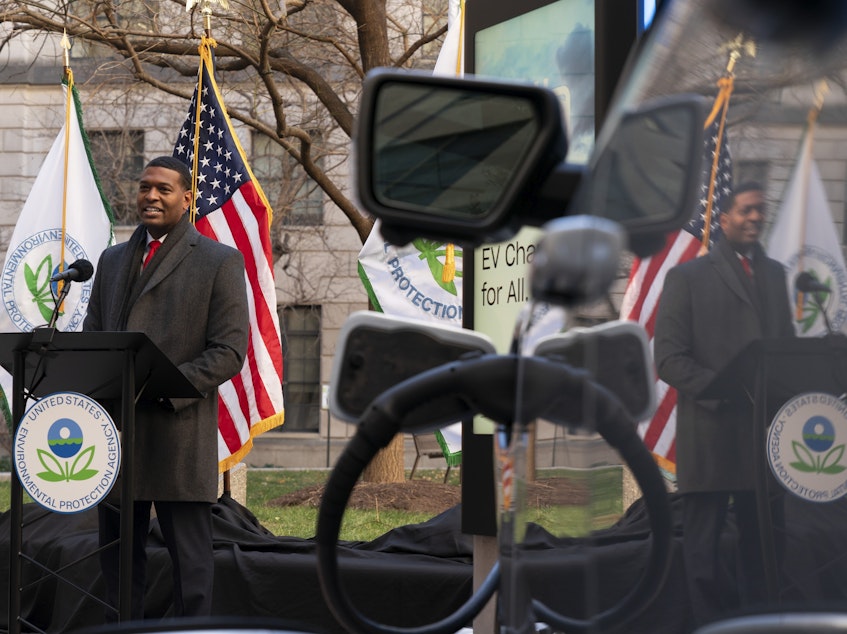EPA announces tighter fuel economy standards for cars and trucks

The Environmental Protection Agency on Monday announced new fuel economy standards to promote President Biden's goal of reducing the nation's greenhouse gas emissions.
The transportation sector is the biggest emitter in the country of heat-trapping pollution, which stokes climate change. The EPA's new rules reverse a much weaker Trump-era regulation for automakers to improve their cars' and light-duty trucks' fuel economy.
The finalized rule calls for vehicles in model years 2023-2026 to reduce their greenhouse gas emissions between 5% and 10% each year. This means that by 2026, cars will be required to achieve 40 miles per gallon.
The plan will improve air quality as it cuts the amount of pollution cars pump into the atmosphere, reduce climate pollution and save Americans money at the pump as cars' fuel efficiency improves, the EPA and environmentalists said.
"The final rule for light duty vehicles reflect core principles of this Administration: We followed the science, we listened to stakeholders, and we are setting robust and rigorous standards that will aggressively reduce the pollution that is harming people and our planet – and save families money at the same time," EPA Administrator Michael Regan said in a statement.
Sponsored
Former President Donald Trump had previously required car manufacturers to raise their fuel economy by only 1.5 percent through 2026.
The EPA estimates that the finalized rule would reduce carbon dioxide pollution from cars from 166 grams per mile in 2023 and to 132 grams per mile in 2026. The agency says the mandate will unlock $190 billion in net benefits to Americans through the year 2050, including "reduced impacts of climate change, improved public health from lower pollution, and cost savings for vehicle owners through improved fuel efficiency."
"At EPA, our priority is to protect public health, especially in overburdened communities, while responding to the President's ambitious climate agenda," Regan said. "Today we take a giant step forward in delivering on those goals, while paving the way toward an all-electric, zero-emissions transportation future."
The EPA's new guidance comes alongside a Biden effort to promote electric vehicles and recommit the United States to the global goal of limiting climate change. The White House has set a target to make half of all new cars sold in 2030 zero-emissions vehicles.
While the EPA rule would be a major cut to the emissions from the transportation sector, some environmental activists say it is not enough.
Sponsored
The nonprofit environmental group Earthjustice hailed the ruling as a step in the right direction, but called for longer term solutions to address the problem of climate change.
"This rule will help tackle the climate crisis and reduce dangerous air pollution in our communities," said Earthjustice President Abigail Dillen. "Now we need strong, long-term standards to ultimately electrify all new cars and light-duty trucks by 2035. We'll continue to fight for standards that move us toward a zero-emissions transportation sector powered by 100% clean energy."
The Center for Biological Diversity was more critical in their assessment of the rule, saying that Biden had yielded to automakers and allowed easily exploitable loopholes to remain.
"These rules are little more than a speed bump on the road to climate catastrophe, when the president needed to make a U-turn," said Dan Becker, director of the Safe Climate Transport Campaign at the Center for Biological Diversity. "Storms, wildfires and heatwaves have grown far worse over the past decade, so auto pollution rules must be far stronger. These aren't."
Becker urged Biden to "force automakers to actually deliver electric vehicles, rather than just churning out promises to make them," lest a new administration once again roll back automakers' fuel efficiency standard commitments.
Sponsored
"This plan minimizes auto company whining," Becker said, "rather than maximizing the fight against global warming." [Copyright 2021 NPR]



